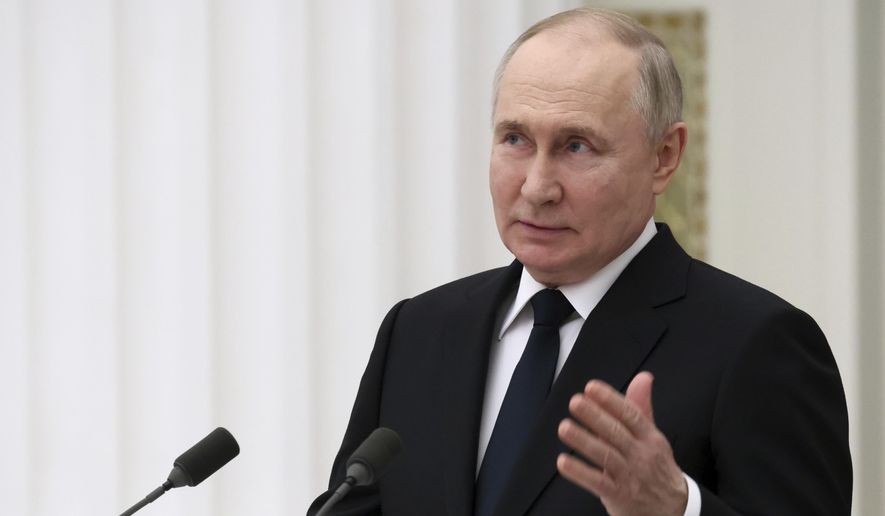The expansion of a military air base in Romania announced this week is just the latest indication the NATO military alliance is preparing for a potential armed conflict with Russia, according to RIA Novosti, the official Russian news agency.
Russia’s Foreign Ministry on Thursday said the strengthening of the U.S.-led Western alliance in former Warsaw Pact countries such as Romania and Poland, along with the Baltic states, is “provocative” and exacerbates international tensions along the Russian border.
“All this is aimed at preparing the bloc’s allies for a potential clash with our country,” Foreign Ministry officials told RIA Novosti.
Russian President Vladimir Putin has long complained about NATO’s expansion to the east in the decades following the end of the Cold War and the collapse of the Soviet Union. But Western leaders and private analysts say Russia’s own actions in the region have sparked the extraordinary increase in NATO assets and reach in the region in recent years.
Romania, a NATO member since 2004, has said it would invest about $2.7 billion to modernize the Mihail Kogalniceanu air base in Constanta, located on the Black Sea. Russian officials said a future military camp at the base will be able to accommodate 10,000 military personnel and their families.
NATO “is aimed at confrontation, and its further expansion will not bring greater security to Europe,” Russian Foreign Ministry officials said, according to RIA Novosti. “The Kremlin emphasized that Russia does not pose a threat to any of the countries in the bloc, but will not ignore actions that are potentially dangerous to its interests.”
President Biden and NATO officials say that it was Russia’s own invasion of Ukraine in February 2022 that helped inspire the military build-up in Eastern Europe that the Kremlin now criticizes. Other moves, such as the addition of Finland and Sweden to NATO since the war began, also reflect fears by countries in the region over Moscow’s aggressiveness.
Romania was among 12 NATO states on Monday that agreed to expand military aviation training across the alliance through the NATO Flight Training Europe (NFTE) initiative. It aims to “fundamentally change” the way allies train the full range of aircrews including pilots for fighter jets and helicopters along with drone operators, officials said.
“Unity doesn’t just happen, it has to be earned,” NATO Deputy Secretary-General Mircea Geoana said Wednesday. “One way of achieving this is by systematically training together and forging trusting relationships in the process.”
• Mike Glenn can be reached at mglenn@washingtontimes.com.




Please read our comment policy before commenting.